Dartford isn’t quite London, nor is it the leafy, idyllic Kent of neighbouring Sevenoaks or Gravesend. It’s a fairly plain little town that you’ll know for one of two reasons: you’ve heard of the Dartford Crossing, or you watched the Eastenders episode when Jim Branning had to drive over the Dartford Crossing. We’re a town that, to outsiders, is still largely defined by a bridge.
But there’s more to us than that. Dartford has long been a place Londoners go to start a family. For my parents – Ugandan-Asian refugees who arrived in Thatcherite Britain and lived in the cramped council estates of south London – moving here was a real story of success, one in which hard work paid off in the form of safety, space and, most importantly, acceptance in white society.
Videos by VICE
Back then – as I’m sure is still the case now – for immigrant families, owning property in the suburbs among well-to-do white families was considered proof you had finally made it. No one could tell you to “fuck off home”, because going home meant walking through the front door next to theirs.
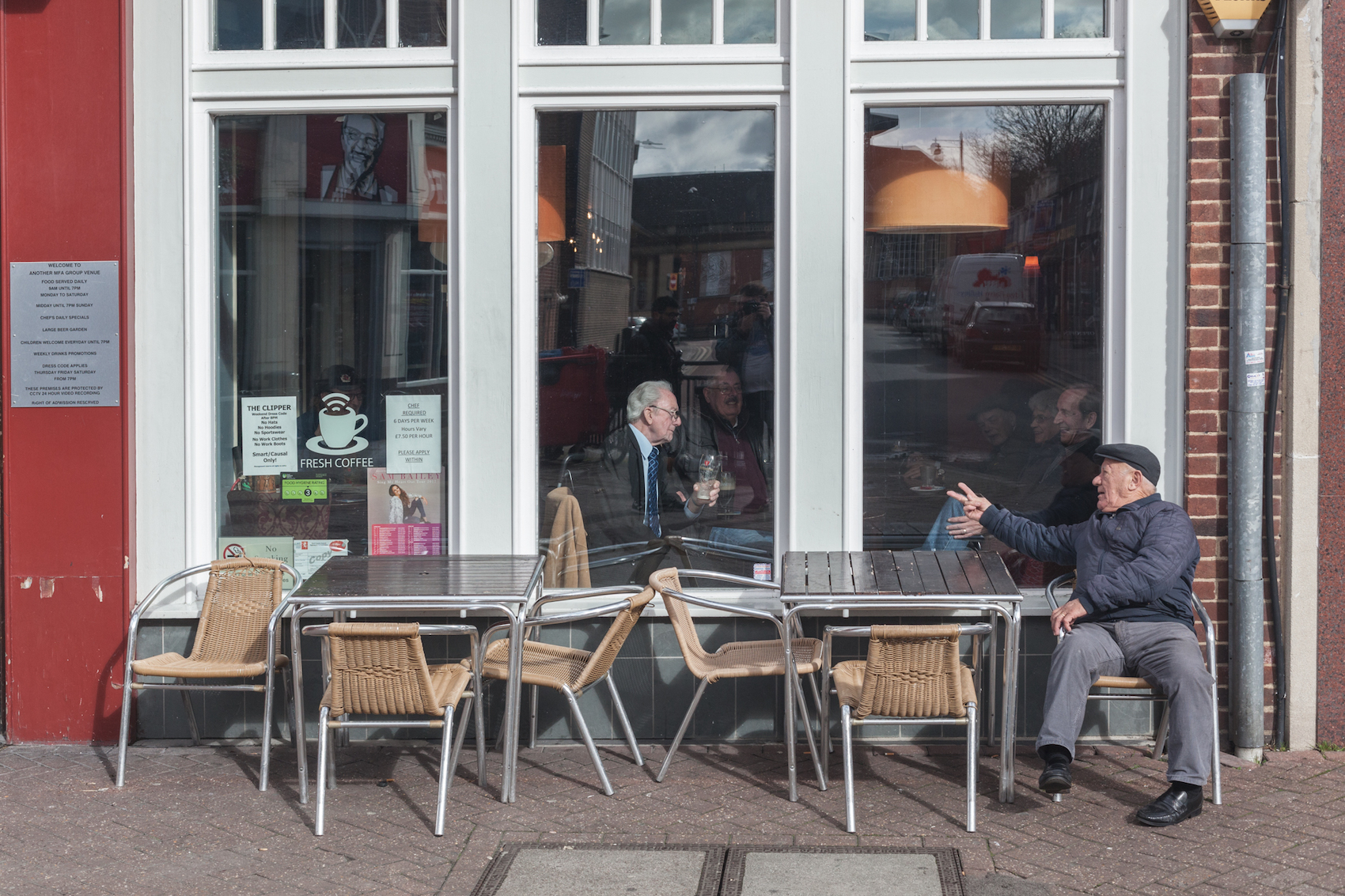
For many people of my generation, there’s not quite the same romance to the place. It took years of lobbying for the council to build a mediocre skatepark, finally constructed around the time the town’s youth centres were being closed down.
Dartford voted overwhelmingly to leave the EU, which gives you some idea of the social and political climate locally – one not particularly attractive to more liberal-leaning young people, and whose more extreme end has manifested in the form of far-right fringe party Britain First marching through streets laced with houses made unaffordable by the bankers and management consultants unable to afford family homes in Zones 1-4. Like most of the UK, it’s not a great place to be young.
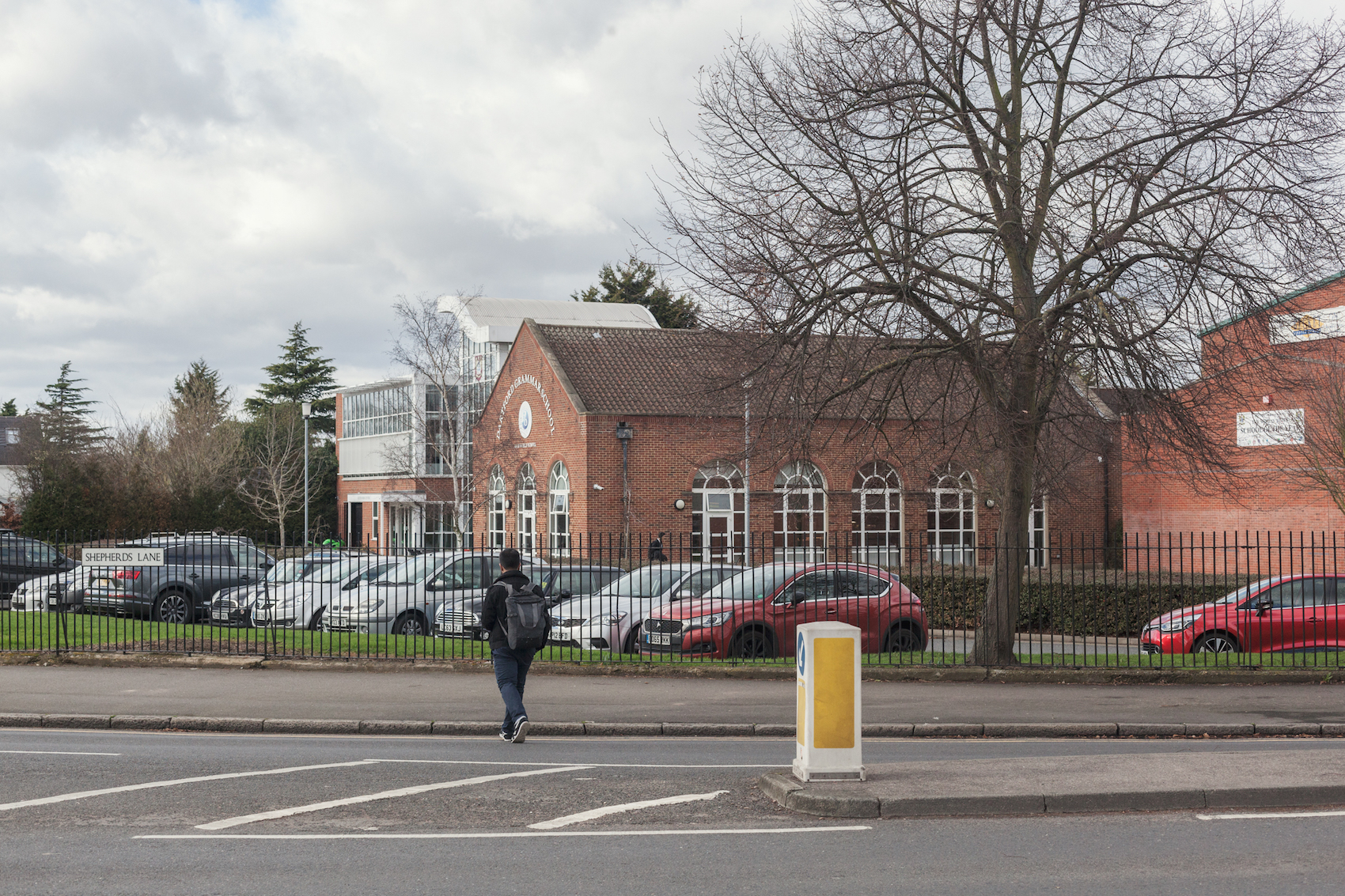
To understand Dartford, you have to understand its education system. When it’s not being called a pensioner’s paradise, Kent is really known as the last place with a selective grammar school system. It’s the reason well-off families screwed up the housing market by buying property here, to help their kids through the selection process, as well as why there’s a booming shadow economy of private tuition – one which I and most of my classmates ended up benefiting from.
Dartford Grammar School sits at the top of West Hill, easily identified by its eclectic combination of red-brick Victorian-era spires, rundown breeze block and perspex glass extensions. It’s considered one of Kent’s best grammars – a reputation that, as a student, is continuously drilled into you. On my first day at DGS, in 2002, I remember a teacher telling our class that we weren’t just at any school, but at a grammar school, and that it was important we all “acted like it”.
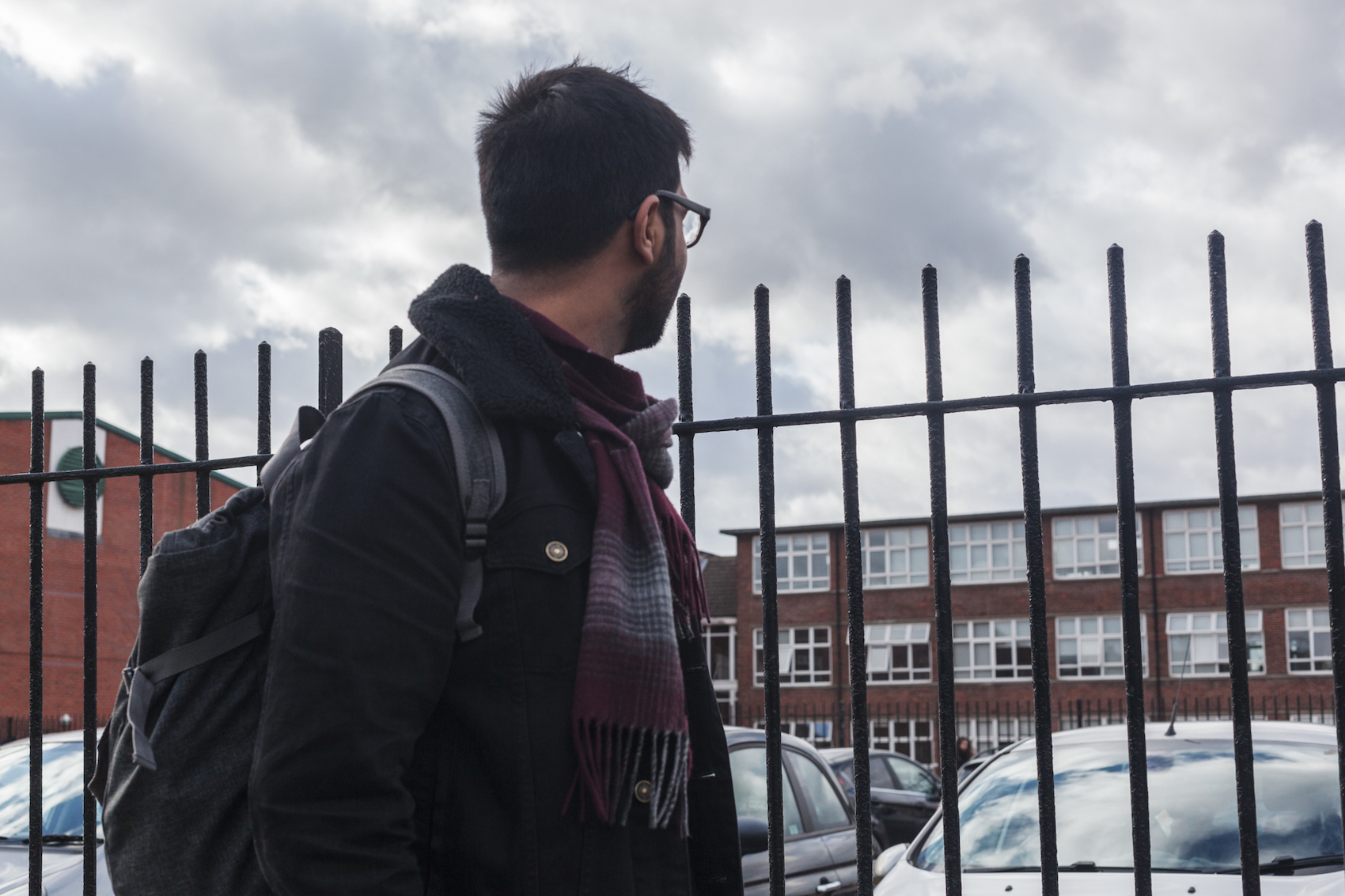
I’m sure what she actually meant was that we needed to do up our ties and top buttons, but the phrase represented something more significant. In political conversation, the grammar school is lauded as a progressive bastion of meritocracy, completely blind to class and circumstance. But that only works if you really believe in the myth – and I’m not entirely convinced anyone really does. For the most part, attending DGS was like attending any other state school – we doodled in torn-up textbooks and etched poetic notes like “Gaz fucked Joe’s mum” on plastic tables – but also we learned Latin for a bit.
Because I wasn’t popular or cool, I spent most of my lunch breaks at DGS reading comics or playing card games. For a brief period, I made friends with the kids who’d light stuff on fire for fun.
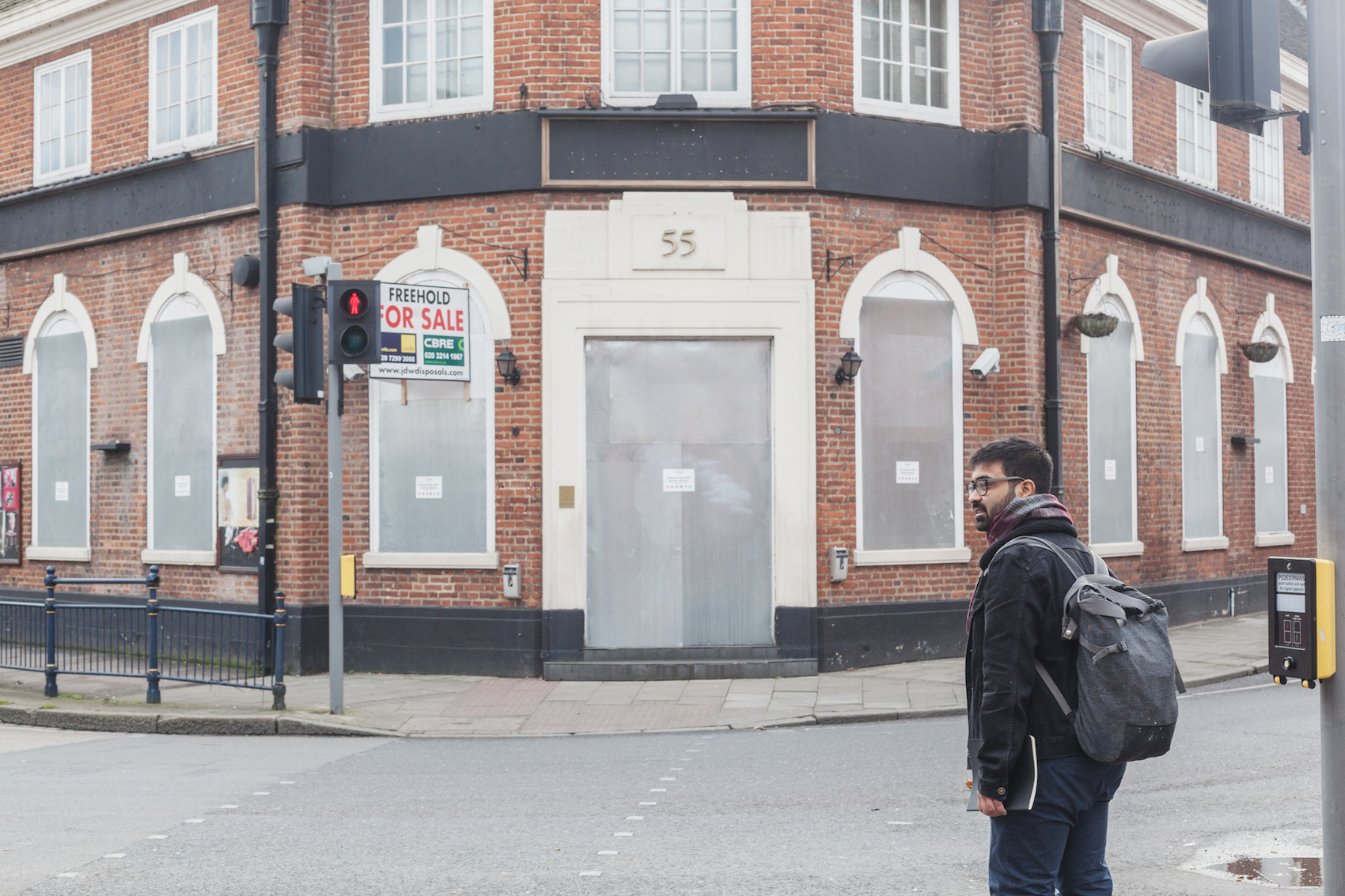
The Paper Moon, which is now either being developed into flats or a kebab shop, was the first pub I ever went to. Walking through its doors, I was just as enthralled as I’m sure any 17-year-old with a “European driver’s license” and a heavy sense of optimism would have been, but there was another side at play for me.
My family ran a corner shop in south London, and like every Asian family that runs a corner shop, we always associated pubs with everything bad. Racist abuse, vandalism and, more often than not, the pools of multicoloured vomit my dad would have to clean when we opened the shop up in the mornings. When I was young and used to work there, my parents always referred to the pub as something “only white people did”.
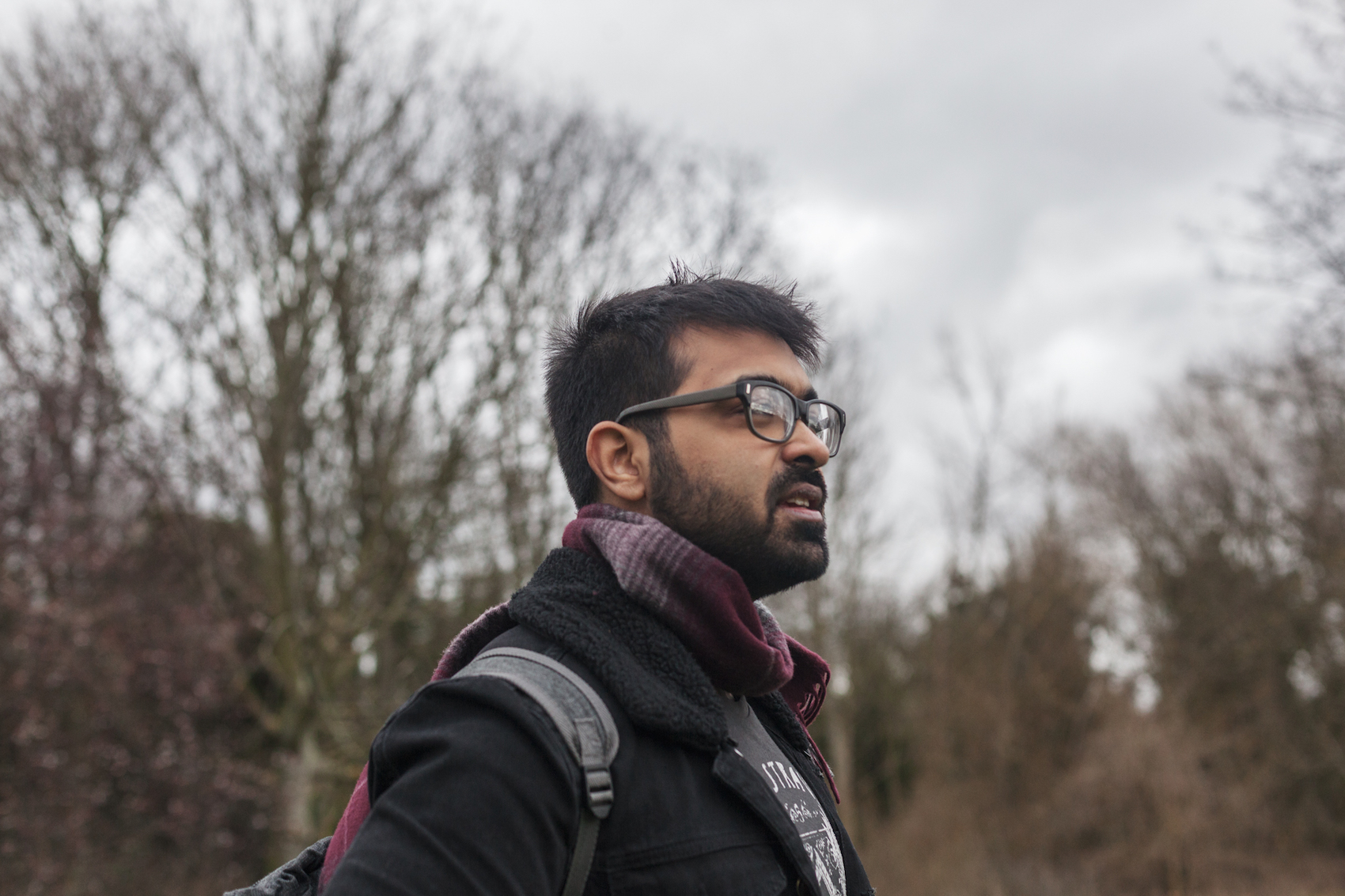
I remember the first time I went in: I lingered outside the entrance for a good half an hour, worried about what I’d find when I got inside – whether all the stories I heard my parents’ customers say, all the things I’d seen on TV crime shows, were true. The reality, of course, was underwhelming: the place was essentially my school’s common room, only with alcohol rather than Capri Sun. It was also the first place I ever bought an alcoholic drink.
I don’t drink – largely out of religious guilt – but I was desperate to fit in. So I ended up calling a mate outside the pub, asking for advice, and he convinced me I should buy a blue WKD. I didn’t drink it, but I won’t forget its weird smell, like a combination of enamel paint and bubblegum. After that, I stuck to drinking water and, on the days I was really ready to let loose, low-sugar Red Bull.
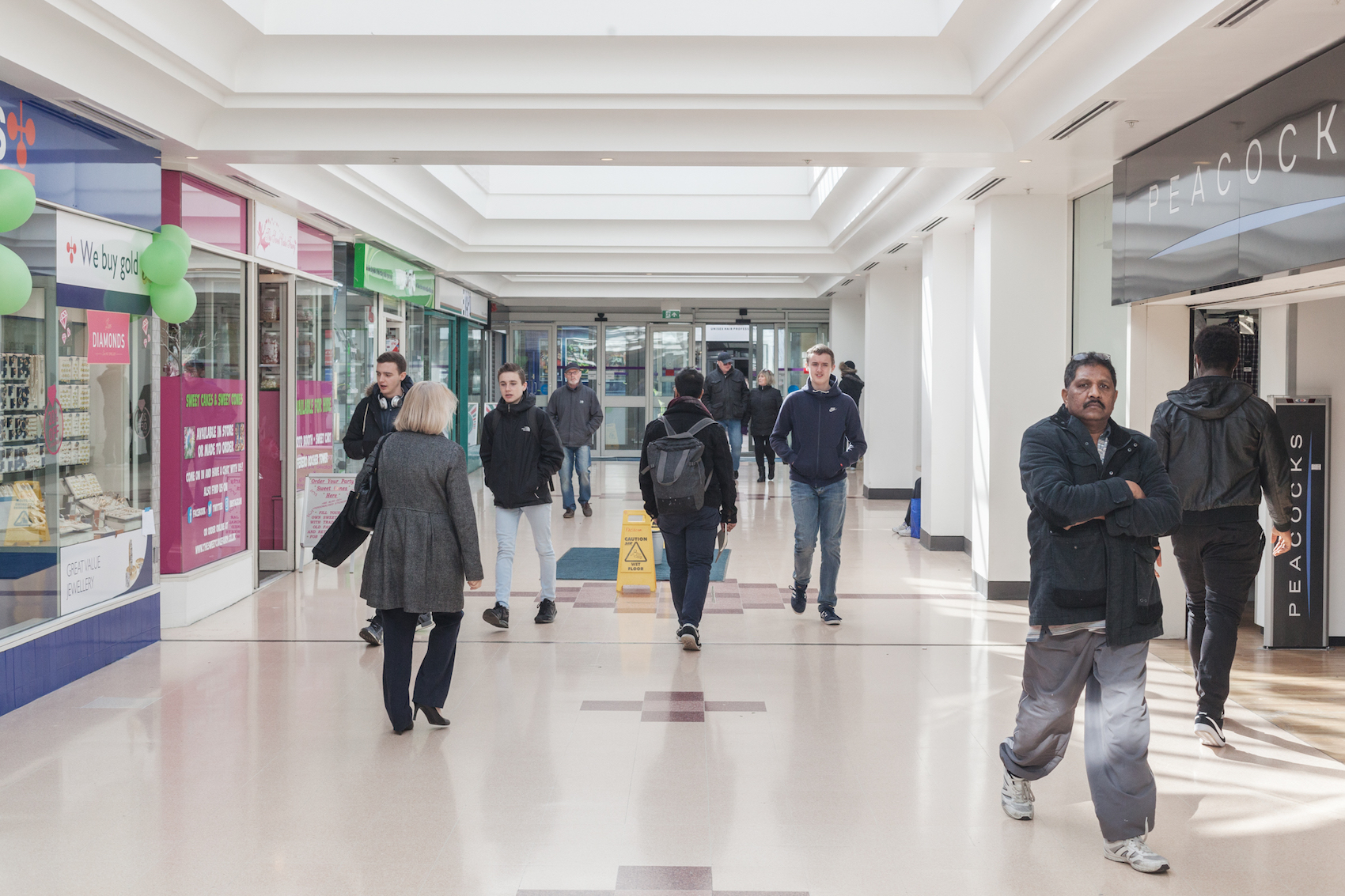
Most people who live in Dartford shop in Bluewater shopping centre, but if you can’t afford a car or the £5 one-way bus out there, you’ll be more familiar with the Priory Centre. It’s the sort of drab suburban time-warp Shane Meadows’ location researcher would go mad for, all empty space, boarded-up windows and shopfronts with a distinctly 1970s take on graphic design. A group of us from different schools – who only really knew each other from Myspace and MSN – would meet up there and listen to Bring Me the Horizon and Enter Shikari CDs outside Waitrose.
During school hours we’d go to the Priory to kill time on free periods, trying on trainers from JD Sports we definitely couldn’t afford and, depending on whether or not my friend *Sam was there, attempting to nick stuff from one of the centre’s four pound-shops. For what it’s worth, I was never successful. I almost got away with stealing a key chain once, before immediately putting it back when I realised I would never, ever want to fasten my keys to a plastic Dartford Bridge.
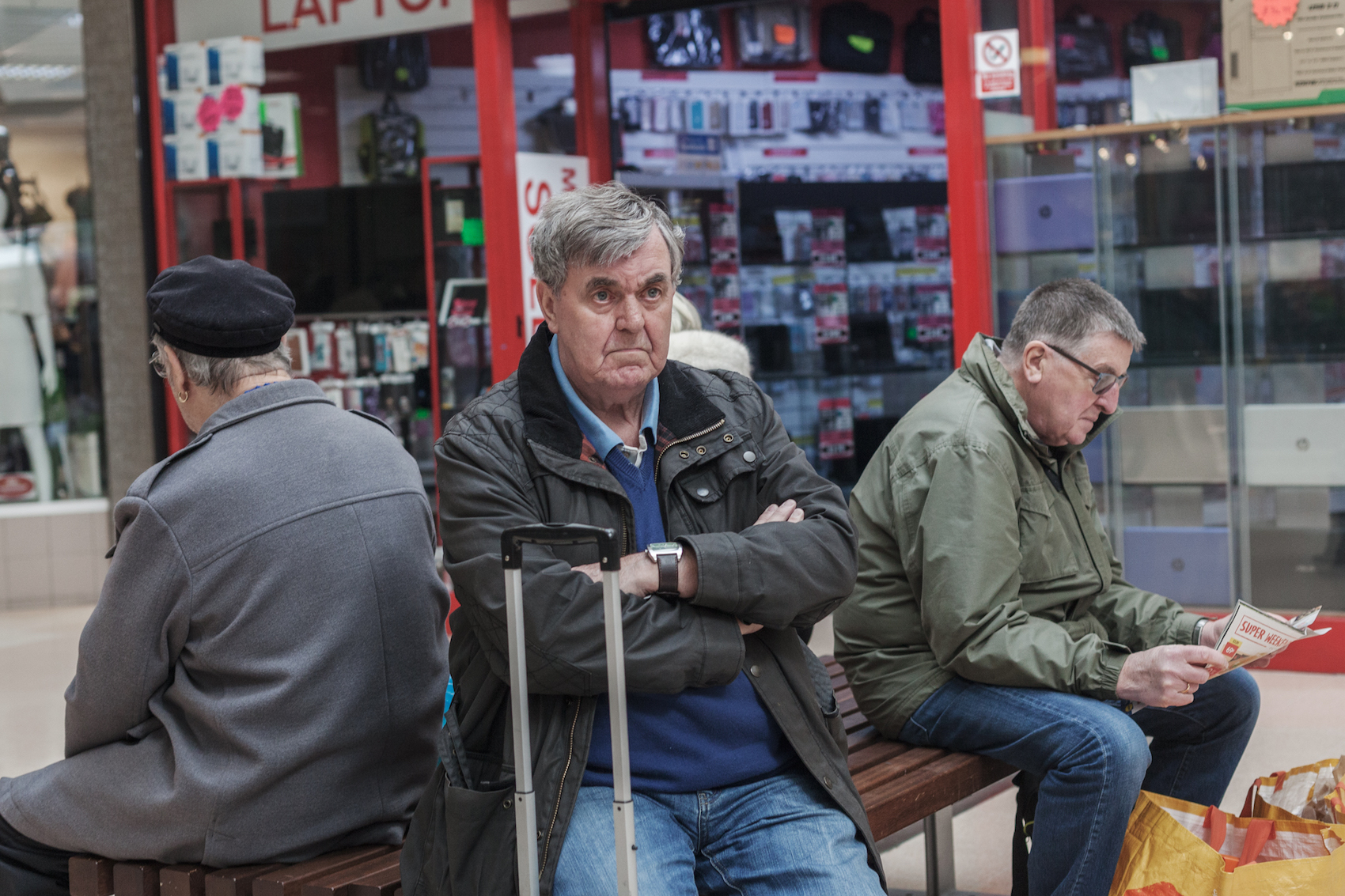
Going back, not much had changed. There are more boarded-up shop windows, and the only stores that seem to be doing any decent kind of trade are the vape shops and the Peacocks that I’m fairly certain hasn’t changed its stock since 2008. Thankfully, the public toilets – the location of many a lost virginity – were still in the same place I left them.
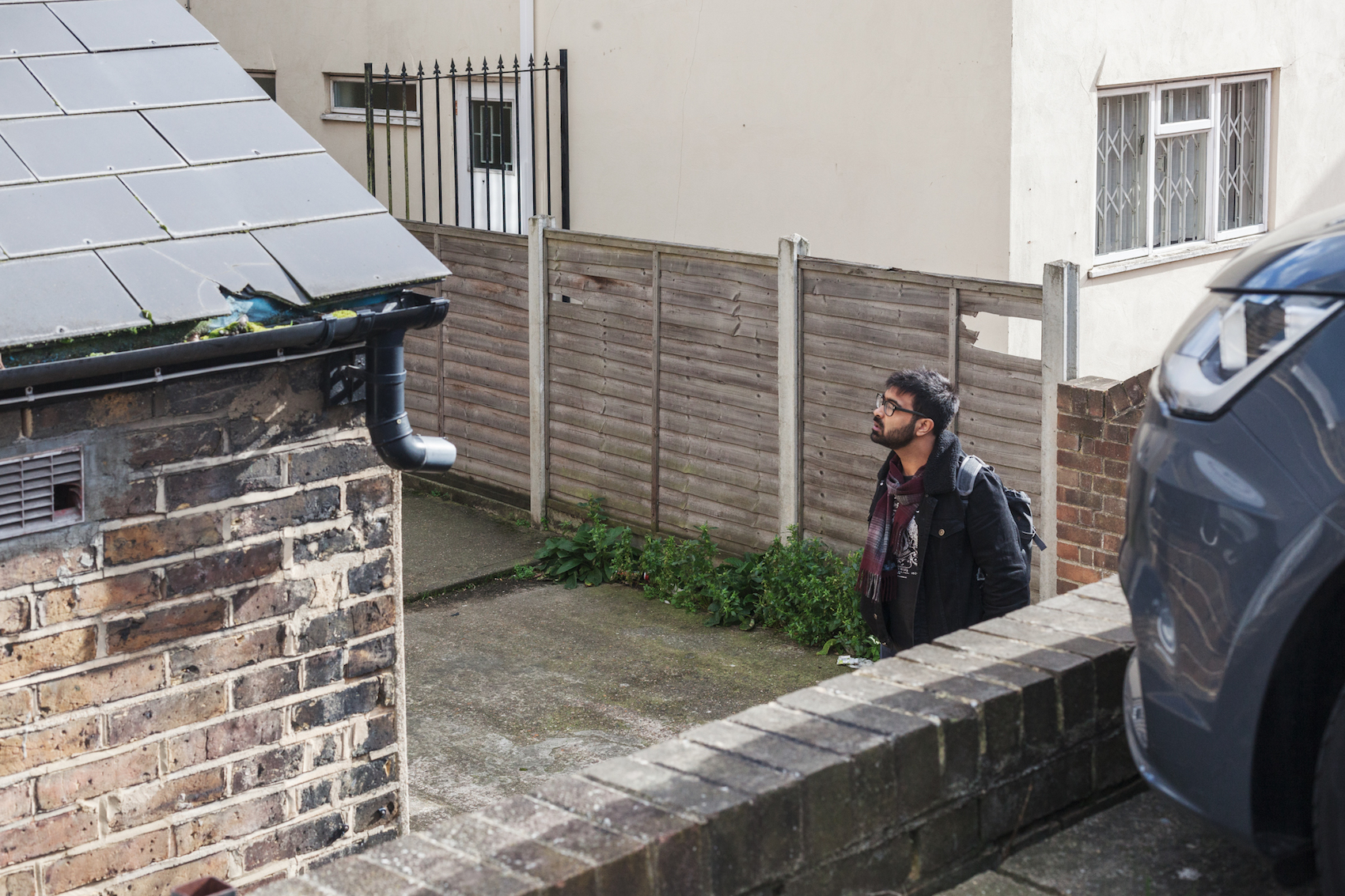
I was 15 when 7/7 happened. Like any Muslim kid growing up in a predominantly white area, the fallout of the attack meant I was forced to confront my religious identity in a way I hadn’t before. This situation was exacerbated for me, partly because there were less than a handful of Muslim students at DGS at the time, but also because the guy believed to be the leader, Mohammed Siddique Khan, by virtue of his brown skin and black hair, looked a bit like me.
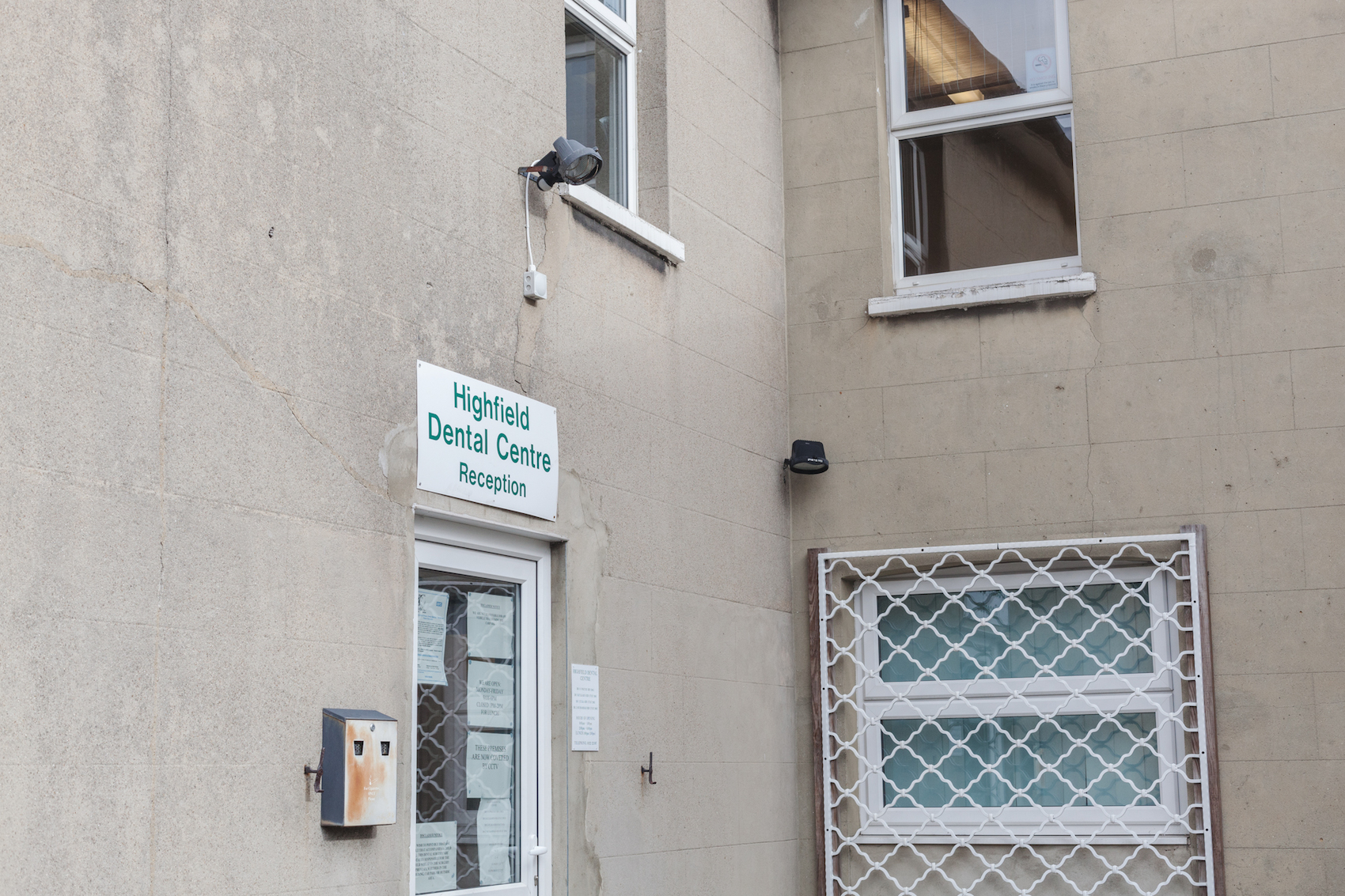
It was around this time that I and another Muslim student discovered the Dartford mosque, which is now a dentist’s office. Back then, mosque was a dark, tiny room decorated with cheap carpet, a few old Qurans and some prayer beads. Nestled between an electrician’s and a residential block of flats, it became our secret place of refuge – a place we’d go to pray, drink Rubicon and listen to dubstep.
At one point we were caught going in by some other students from our school. In hindsight, it probably wasn’t a good idea to tell them our secret terror cell was having a meeting, joking about how we were planning to go to Afghanistan. Luckily we were never put on any anti-extremism programme, but playing Sheikh Terra’s “Dirty Kuffar” in class probably didn’t help our cause.
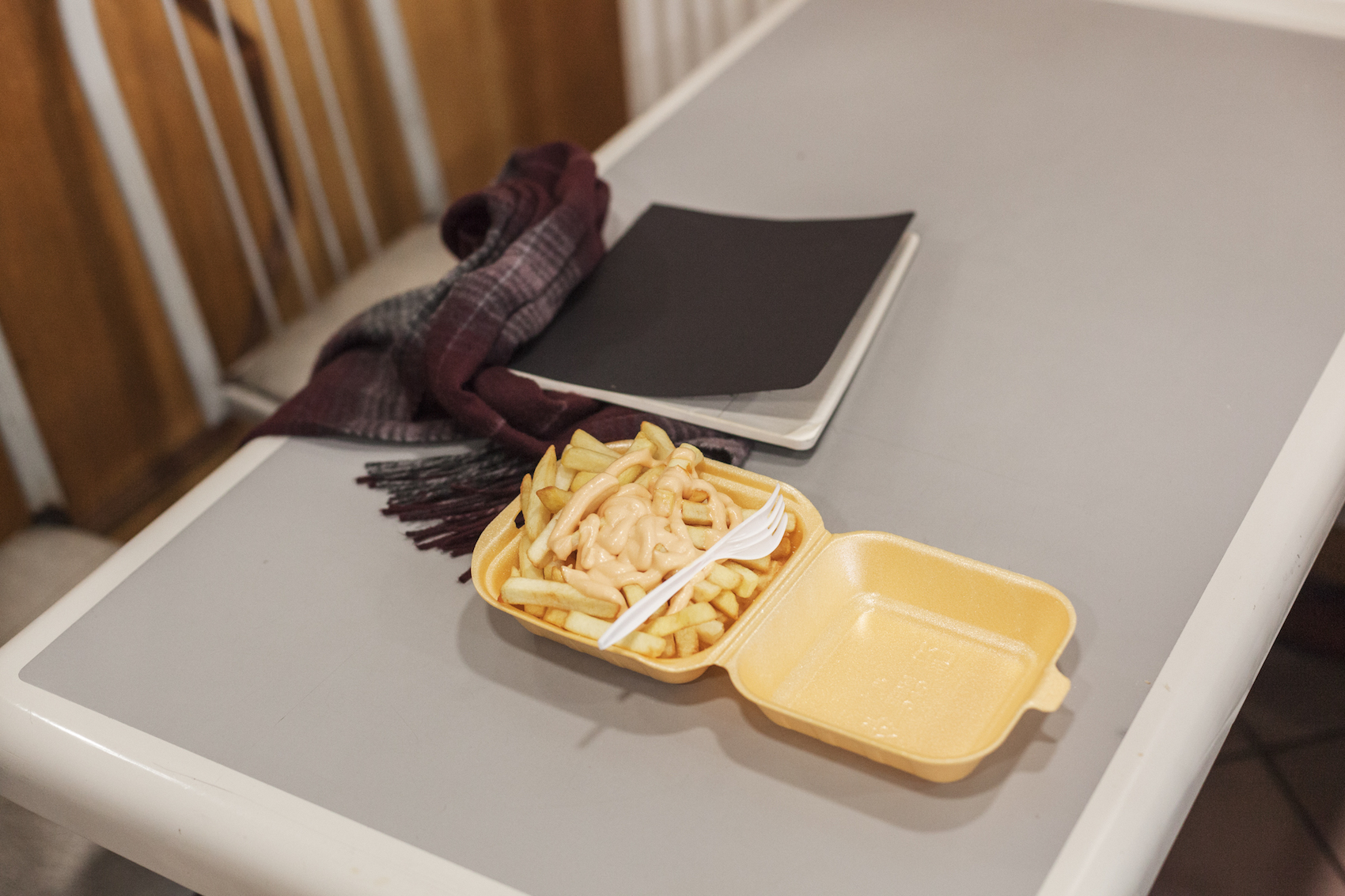
When we weren’t at the mosque we were at Greggs, and when we weren’t there we were at Diamond Grill, a fairly bog-standard kebab shop that, thanks to abysmal school lunches, was the place everyone – regardless of their social clique – would go when the bell rung. For that reason, it acted as a great social equaliser: the popular rugby players would share chilli sauce with the kids who played Warhammer; straight-A students who sat at the front of the class would mingle with the slackers who sat at the back.
After school, people would take their boyfriends or girlfriends to Diamond Grill. They probably still do. And they probably still break up with them there, too.
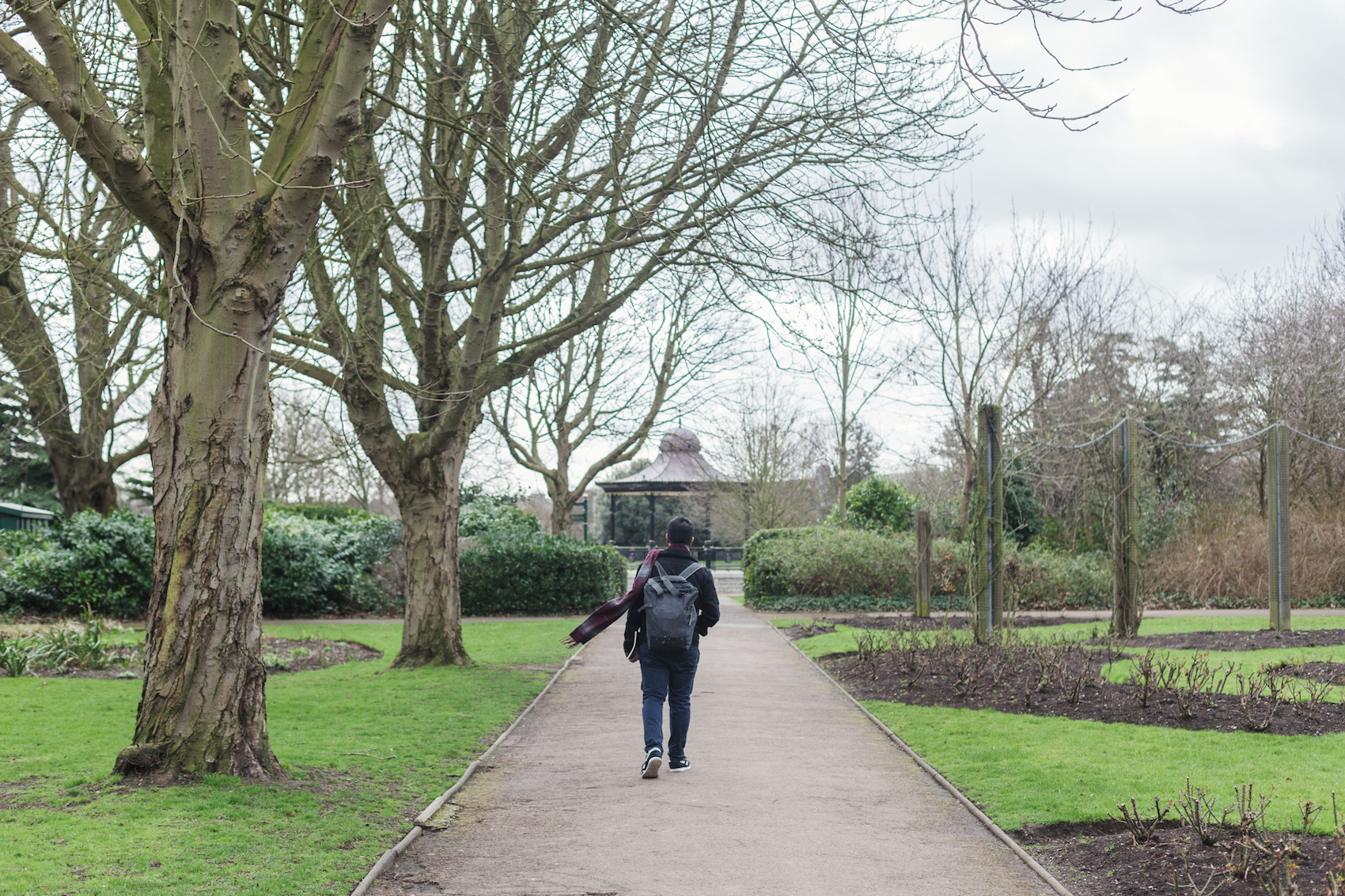
All suburban coming-of-age stories feature parks. Dartford’s sometimes got a bad rep – to keep us from bunking off there, teachers would warn us about the entirely nonexistent junkies shooting up in the bushes – but it was no more deplorable or laudable than any other. There were flowers. There was grass. There was a bandstand never once used to host bands.
When I went to the park it was to bunk off PE lessons or, when I was in sixth form, to hang out with the stoner kids and try to smoke badly rolled spliffs. I’m not sure why I gravitated toward the stoners, other than that I was looking for a way to reinvent myself. Being Muslim meant alcohol was out of the question, and, as a result, so were most house parties and pub sessions. Weed offered a different way in – one where, in theory, the theological rules were a bit more hazy. Plus, as my dad smoked cigarettes, I figured I might get into less trouble if I was caught.
My first time was unremarkable. Perhaps I’d hyped it up too much; at the time, my favourite film was Harold and Kumar Go to White Castle – because finding an Asian character onscreen who wasn’t in any way associated with a corner shop was pretty far-fetched in the mid-2000s – and I suppose I expected weed to lead to exciting adventures, girlfriends and finally getting invited to house parties. In reality, we’d just smoke a couple of weak joints before heading to Waitrose, in our school uniforms, giggling and stocking up on brie and baguettes.
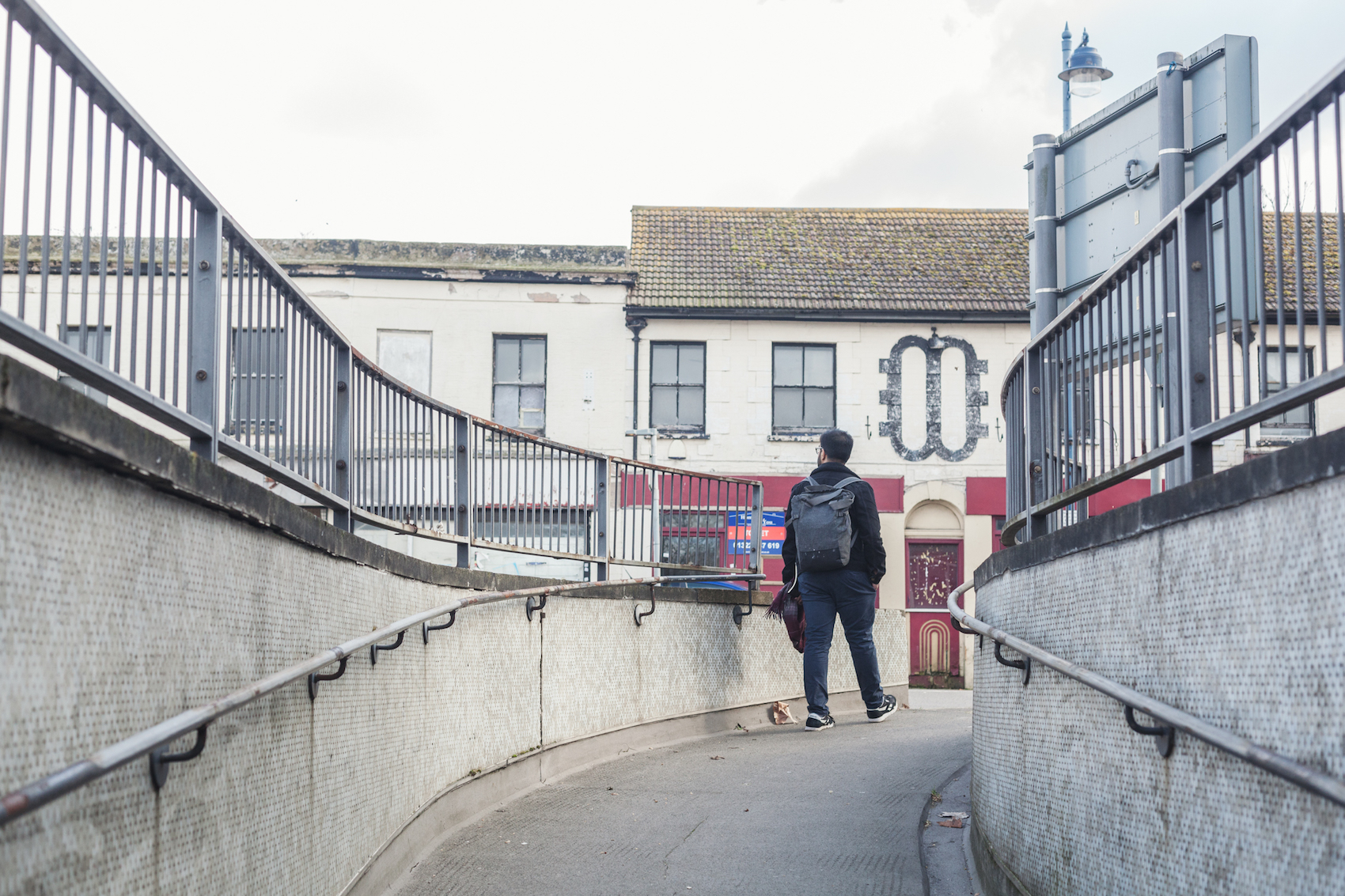
Toward the end of our trip, as Chris – the photographer – and I headed back to the train station, I came across this alley. I sort of froze when I saw it, and it was difficult to explain to Chris what had happened there. But with the benefit of some distance from the situation, here it is: as a young teenager walking through the alley, a guy on a bike threw a ham sandwich at me and shouted, “Get out of here – this ain’t your country.”
It’s something I’d heard time and time again, to the point that I’d become accustomed to it – to the point that it shouldn’t have meant anything. But that moment stuck with me. It became a driving force behind my determination to leave Dartford – which I did in 2010 – and to get a degree, and to move to London, where more people looked like I did. Where I could brush it off and never look back. It was this soundbite that resurfaced in my memory every time I arrived at Dartford station for holidays; when I’d refuse to come back for school reunions; when I was crossing over that big old bridge.

Going back to Dartford, and writing this, has forced me to reassess what this town means to me now. In the stories, the protagonist’s hometown is important only inasmuch as they can reference it as part of the wider narrative of them moving forward in life. For me, that moment was supposed to come when I moved to London, when Dartford would become a footnote – a place I sort of stumbled through various identities in before “finding myself” elsewhere. I never expected, or really wanted, to return.
But that’s the thing about life: it doesn’t always go the way you envisage. Returning to Dartford might have meant confronting some of the conflicting identities I dealt with in the past, but it’s also made me appreciate Dartford as a place that allows people to figure themselves out. This town can be anything to anyone. And, most importantly, a home to anyone who wants it to be.
Previous Home Comings:
More
From VICE
-

Screenshot: Nintendo -

Screenshot: Shaun Cichacki -

Collage by VICE -

Screenshot: Electronic Arts
